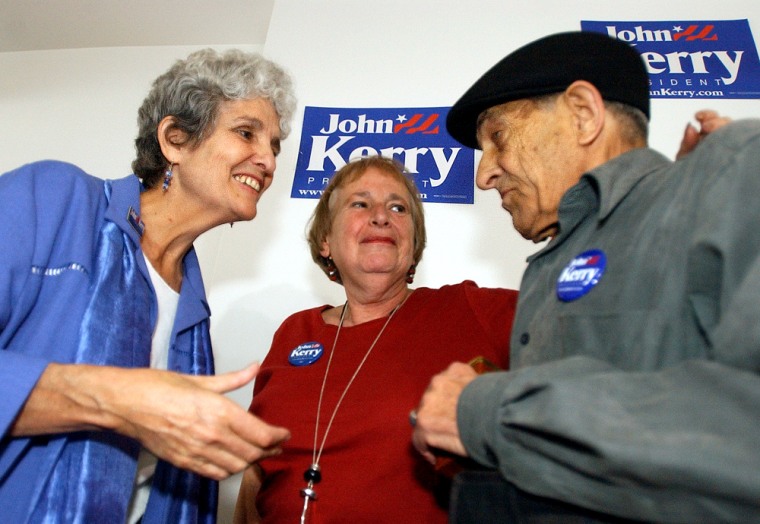Determined to make sure her voice heard, Monica French, an American working for Citigroup in Mexico City, cast her vote at the U.S. Embassy here last week.
“It's a little bit strange because you wonder will your absentee ballot really get to the states, will it really be counted," she said. "That’s a little bit kind of the shaky part about voting abroad."
She has not voted from overseas before, but senses that this is the most important election that she has faced in her lifetime.
French is just one of the over 1 million Americans living in Mexico — the largest group of Americans expatriates living in a single country abroad.
Many of the American retirees and business people feel a renewed sense of urgency about this election, and they are playing a role to ensure that their vote counts, as the campaign moves towards its final days.
There are over 4 million Americans living overseas worldwide. With the candidates still apparently deadlocked, votes coming from abroad could end up being crucial.
Understanding mechanics of voting
The mechanics of the vote overseas have been quite complicated, at least in the experience of the expatriates in Mexico. Some registered citizens like French never received an absentee ballot and had to go to the embassy to vote.
According to Deborah Rainer, the chief economist at the American Chamber of Commerce in Mexico City, there are substantial organizational differences depending on the U.S. state or county of residence.
"I know someone who is registered to vote in Florida who received a letter last week, saying that in five weeks he would receive his ballot. To vote in Illinois, which is where I'm registered, I actually received two ballots," Rainer said. "This suggest that there are dramatic differences between the states in terms of their ability to register absentee voters and get their ballots to them.”
Ana Maria Salazar, head of Americans Overseas for Kerry in Mexico, said the process is "extremely complicated" and that the organization spends a great deal of time explaining the process to the expatriates.
Salazar noted that some ballots came with a magnifying glass attached so people can read the instructions – some of which run up to 20 pages in length.
Mexicans have a vested interest
In Mexico, the elections are being watched very closely. With a shared border, intense trade, and increasing integration, there is a sense that the destinies of the two countries are tied closely together.
Mexicans are concerned about the future of the United States and its approach to immigration and the economy. According to a poll conducted in 23 countries by Global Market Research, 60 percent of Mexicans would vote for Kerry while only 13 percent would vote for President Bush.
The Mexican government has been careful to not take any sides, but President Vicente Fox has said publicly that he wants to "immediately" start laying the groundwork for an immigration accord with whomever wins Tuesday's election.
"We will work to reinvigorate the negotiation process that we had started" on immigration matters, Fox said.
Both parties are vying for votes
According to Larry Rubin, the President of the Mexican Chapter of Republicans Abroad, the campaign for Bush here has been unprecedented.
"I think that Americans here are participating much more for a key reason and the reason being because they realized in the year 2000 — in a very tight election with Al Gore — their vote does count. That is why in this election Americans are going out and saying ‘you know what — I wanna vote," Rubin said. He estimated that 65 percent of Americans living in Mexico will vote for President Bush.
Americans that have spent several years here are concerned about what changes will be introduced to the tax regime, which at the moment is favorable toward them, he said.
Rubin, pointed out that while the economy and foreign policy are on the list of concerns, "Americans get tax exemption when they live abroad and that has been an important item for Americans for the past few years.
"Democrats want to change that, but fortunately the Republicans abroad all united [to ensure] the tax exemption is still in the tax code and that is one of the main issues.”
But, Salazar, chairwoman of Americans Overseas for Kerry in Mexico, believes the GOP will face problems as many expats have felt forced to constantly justify American foreign policy to its many critics abroad.
“The errors of this foreign policy actually feel much closer here,” Salazar said.
Expatriates “find themselves in a situation where they have to try to explain why the White House is making certain decisions. I think Americans living abroad can also feel how the perception toward not only the U.S. president, but also toward Americans in general have changed.”
One way or the other, those who send their ballots miles away from home want their votes to count, and be counted.
